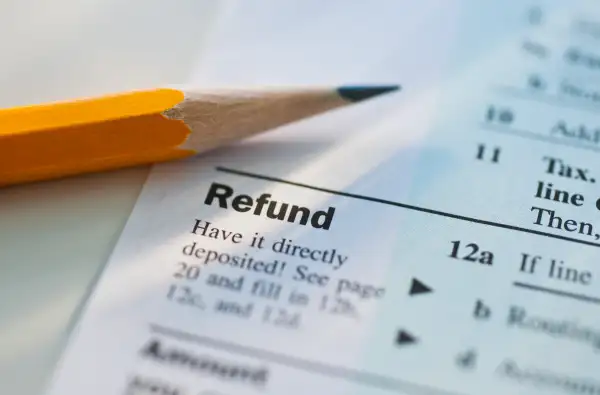There’s a New IRS Scam That Targets Your Tax Refund. Here's How to Protect Yourself

The IRS on Tuesday warned consumers to stay vigilant about a growing scam targeting tax refunds.
Doubling down on an earlier warning, the Tuesday advisory alerted individuals that "more tax practitioners’ computer files have been breached. In addition, the number of potential taxpayer victims jumped from a few hundred to several thousand in just days."
Here's what you need to know about the scheme, and how to protect yourself.
How are scammers targeting refunds?
There are several versions of the scam, but they all boil down to the same thing: Scammers gain access to sensitive consumer data, such as social security numbers, bank account information and more, and use it to file false tax documents. The refunds are then deposited into victims' actual bank accounts.
Then, victims are contacted by scammers posing as IRS agents, who explain that the refund was a mistake, and provide directions for returning it. (Sometimes, the scammers will threaten the person with criminal charges or "blacklisting" their social security number.) When the individual follows these instructions, the thief pockets the money.
How are scammers getting this information?
Often, according to the IRS, scammers access the information by targeting tax preparers. They may use phishing and other tactics to steal the data from tax professionals' computers.
What should I do if I get a fake refund?
The IRS has step-by-step instructions for returning an erroneous refund.
If you received the refund via direct deposit, contact your bank's Automated Clearing House department and ask them to execute the return. Then, call the IRS to explain the situation.
If you received your refund as a paper check, void the check and mail it back to the appropriate IRS location with a note explaining the situation. (You can find the full mailing addresses here.) If you already cashed the refund check, you'll have to repay it using a personal check or money order.
In addition, the IRS recommends contacting your bank and tax preparer if you are a scam victim, as you may need to close your account and take other security precautions.
How can I prevent myself from being targeted?
Filing early will offer some protection, as the IRS will already have records of a return associated with your social security number and other personal information. But because the scam is largely targeting tax preparers, they shoulder much of the burden of prevention. The IRS urged tax professionals to step up security in light of the issue.